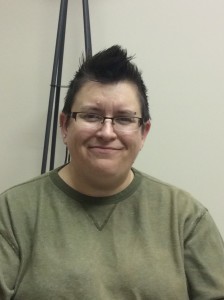

College can be a liberating time. With new friends and a fresh setting, students can be overwhelmed with freedoms and new experiences — including sex.
If not practiced safely, one night’s sexual activity can lead to a lifetime of problems. In 2014, 2,000 people in Greene County were reportedly diagnosed with sexually transmitted diseases (STDs).
The Scoop sat down to talk with Danica Wilson, prevention specialist at AIDS Project of the Ozarks (APO), to discuss reasons why sexually active college students should consider getting tested.
Getting tested may seem mortifying, but the fear of having an STD is worse than the reality.
“Even though it seems scary if you think you’ve contracted an STD, the fear is always 3,000 times worse than the reality,” Wilson says.
She concludes that sometimes the “waiting game” of finding out results can frighten you more than actually being diagnosed with an STD.
Although STDs can cause damage, Wilson firmly believes that, “Knowledge is power. If you know something, then you can choose to get treatment (which many STDs are livable and treatable, today) or you can at least get information on the next steps to take to managing whatever is going on.”
Wilson affirms that there are many resources out there that can help guide you to the next step that’s best for you.
Getting tested isn’t as invasive as you think.
Because of the slight knowledge people have about STDs and getting tested, some people have their own misconceptions about getting tested as well. She says testing isn’t as invasive as you think it is.
“APO has the ability to test for HIV, syphilis, gonorrhea, and hepatitis C,” Wilson says. “We usually test through blood or urine samples. If you’re worried about blood being drawn, there’s a finger-prick option that sometimes alleviates patients’ worries.”
Some STD symptoms aren’t evident.
Usually when you’re sick, you immediately notice. Whether your stomach hurts or you notice you’re blowing your nose more than usual, you can tell something is abnormal.
According to the Office of Women’s Health, many STDs — chlamydia or gonorrhea, to name a few — may show minimal or no symptoms. However, when symptoms do develop, they often are mistaken for other illnesses. Furthermore, if you don’t see the symptoms of STDs, how will they ever be treated?
Getting tested is confidential and free.
APO offers confidential, free testing to citizens of Springfield. Wilson emphasizes that a patient’s confidentiality is always valued, no matter time or place.
“We understand that sometimes privacy is an issue,” Wilson says. “When we call you back, we try to keep it as discrete as possible.”
To make testing even more convenient for college students, APO offers free testing. “There’s never a charge, and you can always walk in, during hours.” Wilson adds.
1 in 5 sexually active people will contract an STD before they turn 25.
The American Sexual Health Association reports 1 in 5 sexually active people will contract an STD before they turn 25. Among other moments in life, it’s more common than people think to contract an STD while they’re in college.
If you have any questions regarding your sexual health, consult your doctor or call APO at (417) 881-1900